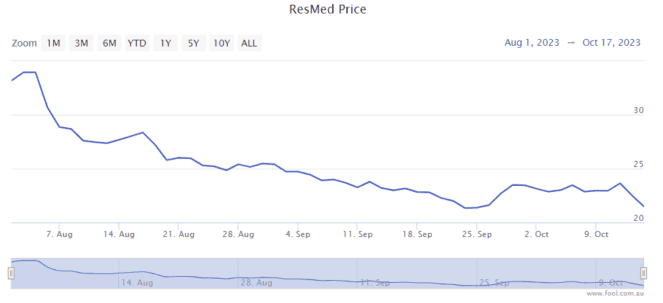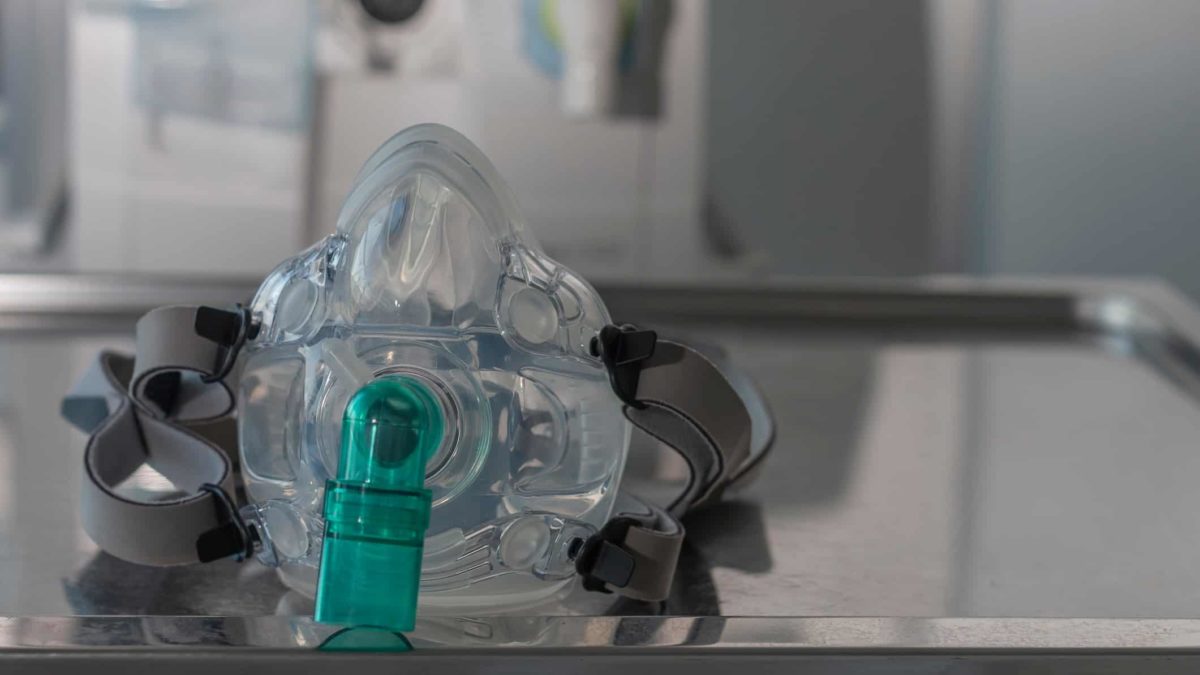The Resmed (ASX: RMD) share price has suffered a significant sell-off over the last few months, as we can see on the chart below. Since 2 August 2023, the ASX healthcare share has declined 34%. Over that same time period, the S&P/ASX 200 Index (ASX: XJO) has fallen just 3.5%.

After such a major fall of a blue chip healthcare stock, it's unsurprising that a number of fund managers have been reviewing the business to see if they think it's an opportunity.
What's the problem?
Ophir Asset Management has explained that there were three triggers that may have caused the decline in the Resmed share price.
First, the gross profit margin "disappointed" in its latest earnings result, compared to the expectation that there would be an improvement as supply chain issues subsided.
Second, investor concerns grew around competition from a new wave of GLP-1 weight loss drugs.
Third, there's the looming re-entry of competitor Phillips into the market after its June 2021 product recall.
Ophir noted that the supply chain issue is "temporary" and there was news in early October that the FDA will push back the timeline for Phillips to re-enter the market. But, the weight loss drugs such as Ozempic and Wegovy are creating the most uncertainty.
The drugs could be a major headwind because being overweight is reportedly a "key risk factor" for obstructive sleep apnea (OSA), with 58% to 70% of sleep apnea cases being "directly related to excess weight gain".
Ophir acknowledged that the weight loss drugs "will likely impact the total addressable market for Resmed" and that will impact the 'funnel' of new patients for Resmed devices.
However, the scale of the impact is "highly uncertain". That includes "supply constraints, lagging real-world efficacy, side effects, low drug compliance, high cost and lack of insurer coverage."
The fund manager noted the potential for people to put on more weight than they lost after stopping using the drug.
Why could the Resmed share price be an opportunity?
Ophir explained:
Treatment for OSA is still a large and underpenetrated market. Resmed's revenue would have grown historically at the same rate even if its TAM was halved. This is because the limiting factor on Resmed growth to date has been the capacity to diagnose those with OSA and prescribe CPAP devices.
Further there is also still a significant population that suffer from OSA for non-weight related reasons (i.e. age and physical traits).
The fund manager said that it will continue to maintain a core position in the business and suggested that at the current valuation, it could be a "great buying opportunity" at five-year lows (and also cheaper than competitors).
However, Ophir also mentioned that it may not be a great buy in a scenario where it's currently "overearning currently compared to what it may earn in the future, depending on the Philips recall and future impact of the new wave of weight loss drugs."
The fund manager owns Resmed shares as a core position in the portfolio, saying that the "attractive valuation it currently trades on outstrips the risks it faces". But it's keeping a very close eye on the company before buying any more.









